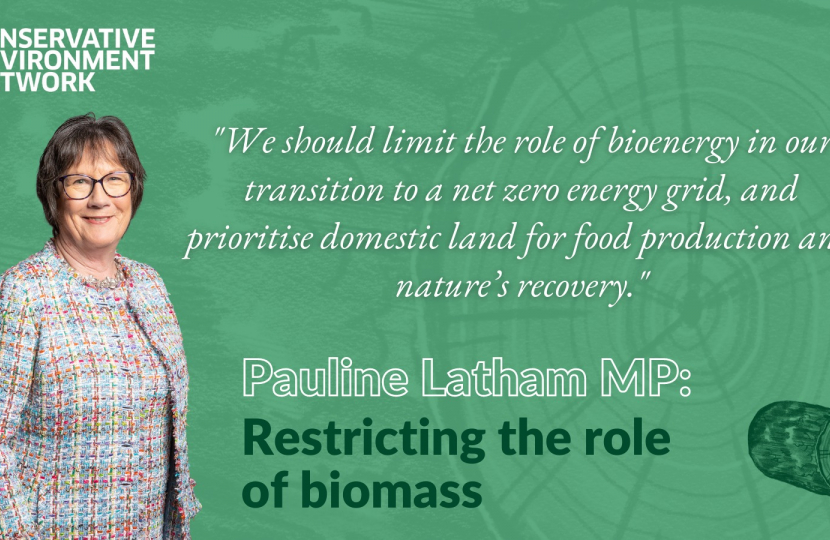
Today my essay on limiting the use of biomass in our path to net zero was published by the Conservative Environment Network.
With household energy bills rising, Britain can’t afford to invest billions of pounds in new subsidies for bioenergy with dubious green credentials.
Although burning biomass to produce electricity once looked like a cheap way to phase out coal, it’s now becoming part of the problem. It doesn’t keep energy bills low, reduce carbon emissions or secure our energy supply.
When the existing biomass subsidies end in 2027, UK energy bill payers will have forked out £13 billion - almost £3 million a day - on the fuel. Although official figures exclude carbon emissions from this supposedly clean energy, the UK’s biggest emitter is, in fact, a biomass power plant, when you count the emissions from the chimneys.
Nor does it help the UK’s energy security - we need to import the wood pellets to burn to produce bioenergy from North America and Europe. If we were to produce the material at home, we would need to sacrifice land we use for food production or at the expense of nature.
That’s why the Government should avoid committing to large-scale subsidies for the next generation of this fuel, bioenergy with carbon capture and storage (BECCS), when it decides its new biomass strategy this year.
While BECCS power plants promise to deliver ‘negative emissions’ by effectively removing and storing any carbon dioxide generated, a growing number of energy experts and climate scientists are warning that the plans won’t deliver.
Effectively, the proposals rely on re-planting trees to absorb the carbon dioxide from the wood burnt to produce electricity. However, forests take time to grow, and in the short term, the emissions from the power plant can damage the environment.
Without tougher regulations and enforcement, this risk is even higher. According to one analysis, if a BECCS plant is fuelled by importing fuel from high-carbon, biodiversity-rich and slow-growing forests, it could emit more than a coal power station.
And these supposedly green proposals would come with a hefty price tag for UK energy bill payers. The energy think tank Ember estimated that subsidising a BECCS power plant could cost £31.7 billion, £10 billion more than Hinkley Point C, adding to household energy bills for years to come.
At a time when energy prices are soaring due to the cost of gas rocketing globally, we should be wary of investing in fuels that fail to cut carbon and push up bills.
Instead of investing in bioenergy, we should look to renewable energy sources like offshore wind and solar power. They deliver genuinely clean and affordable energy and will soon be effectively subsidy-free, unlike burning biomass.
In fact, not only is the cost of new offshore wind nearly a third of the expected price of BECCS generated power, they’re effectively refunding bill payers for previous subsidies. In the final three months of 2021, wind farms paid back almost £160 million to customers, helping to cushion the blow of soaring gas prices.
Combined with new nuclear, battery storage and interconnectors with reliable partners like Norway, we can shore up our energy supply on calmer days. To produce ‘negative emissions’, renewables can be paired with direct air capture plants, which use electricity to extract CO2 from the atmosphere which is then stored underground. Risky biomass does not need to be part of that energy mix.
As energy costs spiral, people are rightly taking a closer look at their bill, but some commentators are wrongly blaming green levies and renewable energy. The volatile and insecure global gas market is behind the rise.
The answer isn’t to rely more on gas, as some have suggested, but to switch to affordable renewable energy technologies. In this context, new biomass looks hard to justify. It’s not cheap, clean or secure and doesn’t deserve another taxpayer subsidy.
You can read my full essay here: https://www.cen.uk.com/essays/green-albion/pauline-latham

